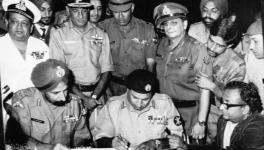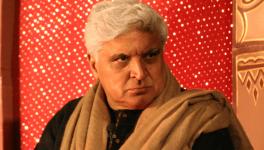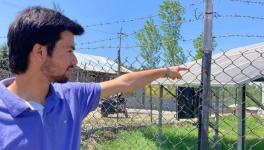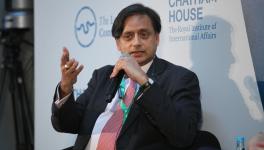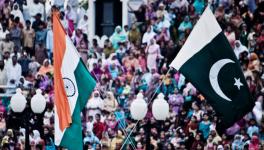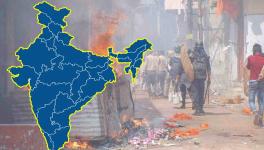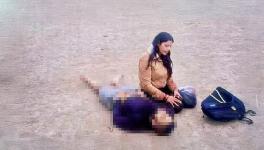Kashmir: The Difference Between the Separatist and the Religious Fundamentalist
It was interesting, and perhaps even ironic, that an article I wrote on the Zaira Wasim controversy drew comments that seemed to suggest I had equated the religious fundamentalists and separatists. And when I refuted this, many pointed out that this comparison was made all the time by the Indian media and its experts.
This set me thinking and I realised it was true. And that what is clear to not just some of us, but even to the more discerning in the Intelligence agencies and the Army that virtually run the Valley has been deliberately perhaps, obfuscated for the consumption of the masses outside Kashmir. In that as part of the larger vilification campaign the separatists have been branded fundamentalists, and thereby condemned to hold the baggage of all that is seen as wrong about Kashmir in the rest of India. Needless to say, terrorism is closely interwined in these descriptions.
Let me write about the three main separatist leaders, currently working together in Kashmir after a long time. It is true that they are all separatists but there was a time---and not so long ago that it has become part of the archives--- when at least two of them were not. Mirwaiz Umar Farooq, very young when his father was killed, was more inclined for many years after inheriting the religious legacy to work with New Delhi. He was the most responsive of all the separatists walking the extra mile to meet with leaders of all hues from Delhi in search of a solution that could give Kashmiri back his/her pride and dignity. He was pragmatic enough to talk of talks, insisting that it was imperative for Delhi to make the gestures so that doors could be opened. Mirwaiz was also not against contesting elections at one point although he never said so publicly.
Mirwaiz, like his father earlier , does not condone violence. He has always been opposed to terrorism and has spoken against it any number of times in the past. Being a man of faith he is conservative, but he is not a fundamentalist. In fact he shuns fundamentalism and lays special emphasis on Kashmiriyat. He is a modern, well educated, easy going young man whose speech by any standard, is secular in tone and tenor. This, incidentally is a view shared by officials who have met the Mirwaiz and the separatist leaders at some length, and over a span of time as this writer has.
Circumstances---more so 2008,2010 and 2016---have made him more critical of India than he has ever been before. And less critical of Pakistan that he had refused to endorse for years before. He is a separatist by virtue of his politics, but the Mirwaiz is not a fundamentalist working in support of a constrictive ideology that discriminates between communities and shuns modern education. And restricts its women to a point where they cannot breathe.
Syed Ali Shah Geelani, the declared hardliner amongst the separatists, was an elected member of the Jammu and Kashmir Assembly. He moved into separatist politics, and is the most conservative of the trio calling the shots these days.
Pro-Pakistan he has been the most steadfast of all in continuuing to agitate against the Indian state but without bringing religion into his discourse. He remains a hard separatist. But he has spoken out repeatedly against terrorism, he has cried loudly in front of some of us on when women came and shared their tragic experiences with him (and us), and while perhaps the most bitter separatist he still has not turned into the hardline fundamentalist for whom the way forward is only through jihad and bigotry.
For instance, there was not a word from him against Zaira Wasim or for that matter any of the other young girls seeking an independent career. There are some who say of course, that Geelani supports the protests against all that is seen as even remotely liberal. Asked about this, a retired officer conversant with Kashmir and the separatists said, “he is not a fundamentalist, he is very conservative, and as you know there is a difference in the functioning of the two. But he is a hardline separatist.”
Interestingly the Kashmiri Pundit community who stayed back in the Valley is in close touch with him, and at least two of them including Lokjanshakti party leader Sanjay Saraf have told this writer that they find Geelani to be most receptive when talking of the problems faced by the Pundits in the Valley.
JKLF leader Yasin Malik has acknowledgely had a violent past, but along the way he adopted the path of non violence as an ideology. He has not moved away from it since, a fact noted and appreciated by a senior IB official independently. Malik is a separatist, but unlike Geelani has always been very anti-Pakistan, and pro-independence. This writer has had long conversations with Malik who is by far the easiest of all to converse with, hospitable, and youthful in his approach to love and life.
His fear in 2010 when 126 boys were killed and the governments in both Delhi and Srinagar remained indifferent was that this would breed violence. And that the boys, when they found their stones were not eliciting results, would move to the gun. He voiced deep worry for their future, registering a certain helplessness at the time. He remains opposed to violence and terrorism, and has reiterated this position on several occasions.
Malik is the least conservative of the three. In fact, he is not conservative at all and has led a life to prove it. His best friends in Delhi are outside the community, and he had always made a point of seeking them out. He abhors hardline religion, and has spoken out against religious ideologues in the past.
Professor Abdul Ghani Bhatt, also of the Hurriyat is a case in point. An interesting Professor who loves to quote freely from English Literature, he is a shrewd politician, a separatist, but the antithesis of a fundamentaiist and/or religious hardliner.
In fact, it is no secret that the separatists faced with the deep crisis of the past months came together to control the situation, and prevent the agitation from being overtaken by fundamentalists, many of whom are being supported directly by Pakistan. As one of them confided to a group of journalists, including this writer, recently, they had no choice but to bring out the calendar of protests to give the angry youth a direction, and somehow gain control of a situation that they had felt would totally slip out of their hands.
Even now the fear expressed by any number of Kashmiris during a recent visit, and echoed by officials, elected representatives and the Hurriyat leaders is that if there is a new phase of violence ad the Hurriyat loses control, it could be replaced by a ruthless, hardline leadership. Religious fundamentalism, they pointed out, is spreading its tentacles and this could spell the ruin of a Valley that has , despite the odds, managed to keep its head above the murky waters of religious fanaticism.
Disclaimer: The views expressed here are the author's personal views, and do not necessarily represent the views of Newsclick.
Get the latest reports & analysis with people's perspective on Protests, movements & deep analytical videos, discussions of the current affairs in your Telegram app. Subscribe to NewsClick's Telegram channel & get Real-Time updates on stories, as they get published on our website.










